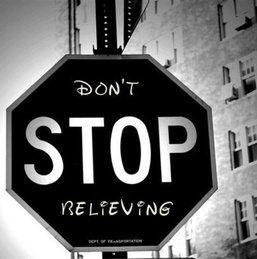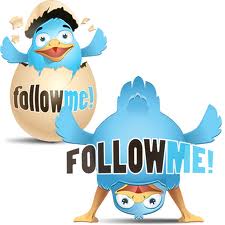|
While playing the game of Life with my oldest daughter yesterday, she said the simplest and sweetest of things and it reminded me that, sometimes, you just have to let it go, let things work themselves out, and believe. She was beating me mercilessly, as usual. I had four children, lost my job twice, got sued, and went on a $35,000 vacation. She, in turn, had bought a mansion, found treasure, and got a book deal. She wasn't gloating though, so she clearly takes after me more than her dad. When she landed on the "You signed a book deal, collect $200,000", I commented, in passing, "I wish that would happen to me." While collecting her money, she says, "It will. But for real, not just in a game. You'll see." Just like that. Now, I do hope that one day my book, which is on sub, gets picked up and has success. It's a fun story. However, I in no way think that I'll become rich in any way. From what I've learned about the book/publishing industry, you write for the same reason you teach: because you love it. Which is fine; more than fine. What struck me is the simplicity of her statement and her conviction. When we're young, we believe in fairy tales, happily ever after, and ourselves. Sometimes, we lose that along the way. As the truth about fairy tales and reality, we let go of that blind faith in things we cannot see. I don't consider myself a jaded person. I believe in people, that good things happen and that good triumphs in the end. But I can't tell you how good it made me feel to know my daughter believes in me, even when I forget to. That simple show of faith reminded me that, in the real world, believing in something (like yourself) can't be measured by time, accolades, or even your definition of success. Believing in yourself, and in turn, in your writing, needs to be a constant. It's what keeps you moving forward. I read an excellent quote the other day: “Sometimes your only available transportation is a leap of faith.”– Margaret Shepard This could not be more true. We need people in our lives that will remind us of this when we forget. I feel grateful to the people I have in my life that do this for me.
 It has occurred to me on more than one occasion that being a parent and being a writer have quite a bit in common. I can honestly say I am no expert at either but each shapes me in similar ways. Here are some of the shared traits I've noticed between the two: 1. Both roles take commitment, effort, energy, and love. Every day. Consistently. 2. They inspire happiness, sadness, joy, sorrow, laughter, and curiosity. 3. They can both wear you out without meaning to. 4. They require patience and an open mind. 5. You are going to make mistakes. You have to get over it, go back, and do better. 6. You may have to enlist the help of others; this is okay. 7. Sometimes, in both, the things you say won't be what you mean and sometimes the things you mean won't be what you say. 8. You are always learning. You are never done. You never know everything. 9. You always have more to give; it may not seem like it some days, but it's there, inside you. 10. You are ridiculously protective of both your child and your manuscript. 11. You have to be willing to accept flaws; nothing and no one is perfect. 12. They both require focus. Sometimes so much that you feel like your eyes will cross. 13. They can cause lack of sleep. 14. These roles both fill something inside you that nothing else could. 15. In both of these roles, letting go, even a little bit at a time, is not easy, but often necessary. Sometimes, after I write something, I have the scary feeling that I'm never going to write anything ever again. I convince myself that there's nothing left; what else could I possibly write about that hasn't been done? When you walk into a book store, you see the piles upon piles of beautiful books; soft cover, hard cover, picture books, non-fiction. No matter what section you spend your time in, you'll see new authors and new books that you had never before heard of or seen. The ability to add something worthwhile to these piles seems fleeting at times. So far, this feeling has always passed when the next idea hits but it doesn't stop me from wondering if what I've written has already been said.Technically, since each writer has their own voice, it would be different, but it has to be more than different if you're telling a similar story. You have to find a way to tell a similar story from a unique perspective, from a different point of view. That story has to be just as compelling as another like it, in a different way, and this is no easy task. It can obviously be done; as evidenced by the selections and options available in every genre. Most love stories have a similar framework: boy/girl meet, something threatens their chances of being together, they overcome obstacles and find their way back to each other. I have read, literally, hundreds upon hundreds of stories with this framework (just reading all of Nora Roberts' books allows for this). However, I like some more than others, I reread some, I put down some after only a few pages, and I recommend certain ones to friends. How can I have such varied opinions on similar stories? Voice, perspective, writing, character connection, action and so much more. Every time an author twists the familiar story with their own unique style, it can compel and capture you. Reading is an essential part of being a writer. I've come to understand that more and more in the last several months. It helps you see how scenes are established, how setting is developed, how characters draw you in; it helps you see what attracts readers. When I switch gears to writing, I have to explore the ideas until I can be sure that what I'm saying, while sharing a similar theme or concept with another book, has not been said or done before. A perusal of any library or book store will help you understand how overwhelming this task can seem. Aside from all of your well-known authors, there are so many that you have not yet read. I am always amazed by this because I consider myself well-read, particularly in children and youth genres. Picture books are a passion of mine; my husband and I had a collection of them before we even thought about kids. Still, the librarian at my school will share a new book and I'm blown away, not just by an awesome book but by how many books might be available from this author I had not yet read. There's always more. A story can be told countless times if the voice telling it is fresh, passionate, and captivating. It's important to know what story you are telling, whose story you are telling. Putting a book together, regardless of genre, is a series of attempts that don't always go well and, many times, seem frustrating. I suppose that's how you know when you are really a writer (published or not): you can't not tell the story. You have that drive and commitment to going back time after time to make your story just as compelling, if not more compelling than another like it. You can always draw comparisons, but in school, we encourage that. We asks the students to tell us: 'What does that book remind you of?' or 'Have you read another book like that?' or 'How is this book similar to your own life?'. While we want to have a distinct voice, we also need the common thread. That commonality may connect a writer's work to another story, but it also connects them to the audience. Your audience wants something from your story. They want to see themselves, find themselves, or even escape themselves. Your story has to be something they identify with in some way. Even if that makes your story similar to another in the same genre, it's what your audience wants. They want another book to make them laugh or cry and to pull them in. Maybe there are only so many stories to tell, but there will always be endless ways to tell them. When you're learning something new, it's really nice to focus on understanding that one concept, narrowing in on it until you have grasped it completely. Let's be honest: this never happens. There's always more than one thing to learn at a time. Most knowledge is intricately woven together with the old and the new. While I learn to navigate the 'writing world' there are layers upon layers of what to know, how to communicate, how to establish yourself, and, of course, how to use social media to bring attention to your writing. Blogging, tweeting, posting; and all of these have nothing to do with actually writing your manuscript, whatever it might be.
I read multiple posts every week on ways to use Pinterest, Facebook, Twitter, and personal websites to establish an author presence. Last week, I figured out how to link my blog onto my pinterest account and actually made a board just for my writing (feeling pretty proud of this). Still, I had to look up the difference between MT, QT, and RT on Twitter, so obviously I have a ways to go. (Stuck? Modified Tweet, Quote Tweet, and Retweet). The thing is, once I figure out the next thing, there will be more. The most challenging part, for me, is that on top of this technological learning curve, I'm improving myself as an author as well. I am significantly better at editing, sentence structure, and flow than I was even six months ago. The two kids, husband, and full-time job tend to keep me fairly busy as well. On Grey's Anatomy last night (I forgot the T.V. watching, texting, reading, and crocheting in that list) one of the interns said "We're a generation of multi-taskers". This is incredibly true. Sometimes, it's too true. While a learning curve generally involves multitasking, that blending of prior and new knowledge, spreading ourselves too thin is something entirely different. I have a tendency to get ahead of myself, to give myself more work than I need, or to agree to things that don't necessarily fit with my schedule. This creates the necessity of multitasking, but it also creates stress. That feeling (sometimes overwhelming) of needing to do it all now needs to be reigned in. It was enough to learn the Pinterest link last week. I'm still playing around with it this week. I've begun to use Twitter more frequently as a form of communication and connection with others in the writing world and to keep myself up to date on what's happening. Just because it's there, doesn't mean we have to access it all immediately. I do think that it's useful to have started though. If/when my children's book is picked up, I will feel a few steps ahead by already establishing all of this. A few steps ahead, of anything, would definitely be an enjoyable position! I think of the kids in my class, my own kids, and myself and all the information we constantly take in. We want it, we usually enjoy it, but sometimes we have to step back and say, "What's most important right now?" Because, as much as you want to, you can't do it all. If you do, it's likely some of it will fall apart, at least until you've truly mastered what you set out to learn. So I won't worry too much that I'm not on Instagram yet, that I've only logged about 80 books into Goodreads, or that I had to look up the acronym GIF (Graphics Interchange Format) because I saw it on Twitter last night. Even with the speed at which all of this knowledge is coming at us, we can still take time for babysteps. It may take a little longer, but you'll feel more secure when you're there. What's your favourite form of social media? |
Archives
May 2021
Categories
All
|






 RSS Feed
RSS Feed
